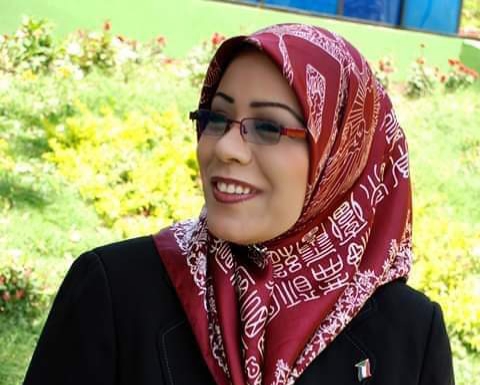Truth Has a State, Falsehood a Moment

By Dr. Enas Mohamed Ahmed
Most of us may know that diplomatic relations between nations are governed by the Vienna Convention on Diplomatic Relations, which was signed on April 18, 1961, in Vienna. The Convention comprises 53 articles and has become a fundamental foundation for international understanding and the regulation of relations between countries.
The primary role of diplomatic missions is to serve as bridges of communication between states, provided they respect the laws, customs of the host country, and the principles of international law, as outlined in the provisions and foundations established by the Vienna Convention. Diplomatic representation is also a manifestation of a state’s external sovereignty and a confirmation of its legal presence.
On the other hand, we observe that the rules governing diplomatic relations between nations are among the most universally agreed-upon norms in international law, with little to no dispute surrounding them. In fact, in its landmark 1980 ruling on the case of American diplomatic hostages in Iran, the International Court of Justice affirmed that “international law itself is rooted in diplomatic relations between states.” This statement granted diplomatic norms a distinguished position within international law and highlighted how firmly established and undisputed they are.
Just as cooperative diplomatic relations have their own rules, so do the severing of diplomatic ties and the expulsion of diplomats. Such actions usually occur for serious reasons such as war—whether direct or indirect (e.g., sponsoring terrorism, funding it, undermining a state’s regime, or other hostile acts that harm a nation’s sovereignty, security, or stability). These actions are typically seen as escalations, often used to register protest in disputes that resist formal timelines. Expulsion of diplomats is sometimes a retaliatory measure after one country expels another’s diplomats. Nevertheless, Article 29 of the Vienna Convention clearly stipulates the inviolability of diplomatic personnel, prohibiting any form of arrest, detention, or search due to their immunity under international law. Diplomats must also be informed to leave within a specified time frame.
Therefore, Abu Dhabi’s recent actions—expelling Sudanese diplomats without providing reasons, detaining them after they had completed all departure procedures at Dubai airport, interrogating and searching them, holding them for eight hours, and even spying on their phones and computers—constitute a flagrant violation of the Vienna Convention on Diplomatic Relations. Such conduct is not expected from a state that respects international law or the treaties to which it is a signatory.
The problem is not the expulsion or removal of diplomats—this can happen between nations. The issue lies in the violations committed against Sudanese diplomats at Dubai Airport.
Abu Dhabi has not only funded, assisted, armed, and supplied the terrorist militia with mercenaries from various countries and worked tirelessly to prolong the war through every means possible. When the Sudanese people exposed its schemes and revealed its true face to the world—exposing its malicious and destructive actions as part of a broader agenda—Abu Dhabi resorted to these actions to distract the world.
However, nothing will distract the Sudanese people from their cause. They will not forget Abu Dhabi’s support for the terrorist militia. It will remain etched in their collective memory as a hostile state that sought to spill Sudanese blood, destroy their homeland, and displace a people who once extended their hands to help it rise and build.
We merely remind our government that reciprocity is also a principle of international law—and truth has a state, while falsehood is fleeting.
Source: Al-Muhaqqiq News Website



